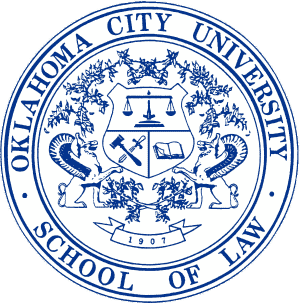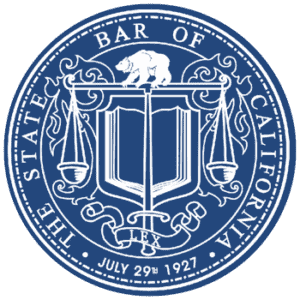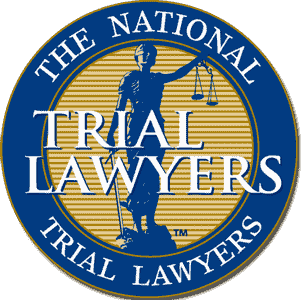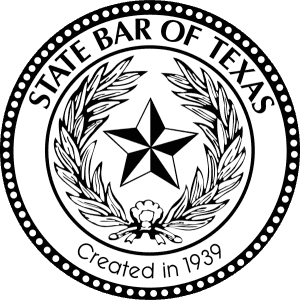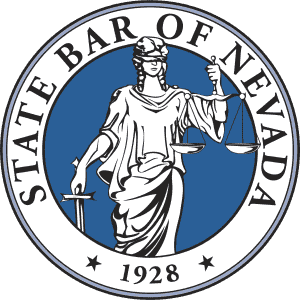The Legal Road to Vaccine Approval in the US
Estimated Reading Time: 9.2minutes
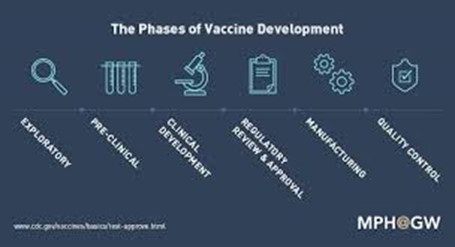
FIVE STAGES TO VACCINE APPROVAL
- Clinical Development
- Animal Testing
- Human Limited Testing
- Expanded Human Testing
- Manufacturing Assessment
Long before vaccines are ever tested on humans, researchers perform extensive laboratory testing and animals to obtain basic information regarding how their prototype works. This phase of the development of a vaccine is known as the pre-clinical phase.
The Clinical Development Phase
After extensive research and animal testing a drug manufacturer will be ready to begin studies in humans. During this process, they compile the results of laboratory and other pre-clinical experimentation. They also gather documentation pertinent to the potential manufacturing technology and quality control of the vaccine and provide this information to the FDA, a form of what is known as “investigational New drug application. “
(IND) The food and drug administration evaluates the application which includes an assessment of the pre-clinical information obtained as well as data regarding how the animal testing was conducted. All testing must be performed to what is known as “good laboratory practices“ there is a whole section of regulation that defines “good laboratory practices.“ In the interests of time I will simply point out that it is a rigorous and highly structured process that they must follow to present and preserve their clinical research and studies. The FDA also conducts its own testing and assessment of the product to determine its quality and safety. The FDA also investigates independently the technology that will be used to manufacture the vaccine and determine if it is reasonably safe to test the vaccine in humans. Testing that is done regarding human test volunteers is known as the clinical development stage and is conducted through FDA oversight. Clinical trials must be conducted pursuant to the plan that FDA has established. This plan is known as “protocol”. For example, part of this protocol requires that vaccines that are generally intended for children are only tested on adults first. There are basically three phases that must go forward in order for a vaccine to reach approval. However, the phases do tend to overlap each other.
Human Testing Phases
Phase 1: Phase 1 of the clinical trials safety protocol usually requires that anywhere from 20 to 100 volunteers who have not been exposed to the disease or virus being studied and are generally in good health participate in the study. This first phase of the study is used to determine whether there are serious adverse reactions and determine the dose needed. This early phase gives researchers information about how well the vaccine is in inducing an immune response in humans.
Phase 2: Phase 2 involves the testing of volunteers who did not react to the vaccine adversely from phase 1 along with additional volunteers take the vaccine. This is also the phase where dosages are tested on people with varying health states from different demographic groups. They are randomized controlled studies. During these studies, the scientists are able to obtain additional safety information on short term side effects and risks. During this phase, scientists also look at the relationship between the dose administered and the immune response of the volunteers to provide additional information about the effectiveness of a vaccine. These are standard and validated tests that have been used for decades in the promulgation of all of the vaccines that we currently have. These phase 2 studies also include a control group of people who receive a placebo, meaning they think they are actually getting the vaccine when they really are not. That group is then studied in comparison to the group that actually receives the vaccine. Once these studies are completed on human test volunteers and this data is gathered and safety concerns are addressed, studies move onto the phase 3 process.
In phase 3 of the testing, the vaccine is given to thousands of people in a study that generates important information on whether the proposed vaccine is effective as well as obtaining additional safety information regarding the vaccine. This phase also gives scientists more information about the effects of the vaccine on the volunteer’s immune response and compares their response to those who receive the placebo. The best way to explain this phase Is looking at the number of people who actually get the disease versus the number of people in the control group getting the disease to see if the incidence is less.
Expediting the Process for Public Emergency
Historically this process has taken several years to complete. However, with a nation (and actually the world) facing a pandemic, the process can be expedited. In the COVID-19 situation, United States government used government agencies, international counterparts, academic world, nonprofit organizations, and pharmaceutical companies to all develop a coordinated research effort to speed the development of a vaccine for the coronavirus. The federal government also can make investments for manufacturing the vaccine giving companies financial security in knowing that their expenditures in research and development will be compensated for when the vaccine is produced. In recognizing the urgent need for a coronavirus vaccine, the Food and Drug Administration exercised its authority and expertise to assist in facilitating a quicker production of a safe and effective vaccine. During this pandemic. the FDA gave clear directive to the pharmaceutical industry pertaining to scientific data and information that would be needed to produce a safe and effective vaccine that works quickly. NDFDA also provided advice on their proposed development plans. Additionally, in order to expedite approval, manufacturers are allowed to submit an “emergency use authorization“from the FDA.
The Manufacturing Process
In addition to the safety of the proposed vaccine for human use, DFDA also investigates information pertaining to the safe manufacturing of the vaccine and where it will be made. It is complex to manufacture a vaccine and any candidate for the vaccine that makes it to this phase 3 studies will produce the vaccine in batches. The FDA requires manufactures of the vaccine to submit data to support the process of manufacturing facilities versus quality of the final product and they must demonstrate they can consistently produce a quality vaccine. The FDA works closely with the manufacture to develop and release protocol which is basically the requirements of each batch testing that will be conducted on every batch of the vaccine that is pretty. Every batch of the vaccine that is produced must be tested and receive approval. It is not a onetime approval process. The FDA consistently overseas the oversight of the production of the vaccine even after the development stage. Once manufacturing begins the FDA works closely with the manufacture to develop and release a protocol which is basically the requirements of each batch testing that will be conducted on every batch of the vaccine that is produced. Every batch of the vaccine that is produced must be tested and receive approval. It is not a onetime approval process. The FDA consistently oversees the oversight of the production of the vaccine even after the development stage.
Final Approval
A company seeking final approval must submit the Biologics License application (BLA) to the FDA. The Biologics license application is a comprehensive proposal that is submitted to the FDA that includes Data regarding the safety and effectiveness of the vaccine as has been evidenced by the clinical and pre-clinical studies as well as manufacturing and facility information to ensure that the vaccine can be produced as required consistently. Once the FDA evaluates the application and decides whether to approve the vaccine for use in the United States, production begins.
Factors considered to approve a vaccine
Vaccine approval is a complex and risk benefit analysis that the FDA undertakes. The analysis considers all the clinical studies as well as the public need for the vaccine. The FDA looks at the Biologics Licensing Application and makes a determination whether or not to approve a vaccine. The team on the FDA that makes this decision is generally comprised of pharmacologists, toxicologists, experts in post marketing safety, doctors, chemists, statisticians, microbiologists, clinical study site inspectors, manufacturing and facility inspectors, labeling and communication experts. It is an impressive team of scientists that determines whether a vaccine will be approved.
Oversight Following Approval
Like any medication, vaccines have risks and benefits and no vaccine will ever be 100% effective in preventing disease. Most vaccines have some side effects which are generally mild and short-lived. In the United States, the FDA’s evaluation and approval process for vaccines is rigorous and comprehensive. However, even after the vaccine is approved, there is ongoing surveillance by the FDA to identify any common adverse reaction or complications from the vaccine as well as to monitor the effectiveness of the vaccine. During this time, the FDA may require the manufacturer to conduct post marketing studies to further address potential risks. The vaccine is closely monitored to determine possible concerns or adverse risks.
The vaccine approval process is something that is not taken lightly by the FDA and the scientific and protocols required to produce a vaccine are rigorous and intense. It is a team of scientists from various fields that ultimately determine whether a vaccine can be approved. Once produced, vaccines are considered to be safe for the majority of the population and the risk of a disease striking the population is greater than the risk of the minor side effects of the vaccine.
From all of us at the TheOneLawyer.com, we wish you and your family a very happy holiday. In these difficult times, we hope you enjoy all your unique, special holiday traditions in a safe and controlled environment. When traveling during the holidays, look at some of my past blogs regarding injuries that can occur on vacation and issues arising with rental cars. We hope that you travel safely.
If you or a loved one is injured call our office immediately. If you have been in any type of accident and have questions, please do not hesitate to contact our offices today. At my office, we are experienced in helping injured victims get the compensation they are entitled to. Insurance companies never have the best interest of the injured person at the top of their priorities. They want to pay as little on every claim as possible. Having worked for an insurance company as an attorney for 9 years before opening my boutique law firm specializing in helping injured people, I reviewed thousands of auto accident claims and policy provisions.
At the Law Offices of Laura Payne Hunt we are here to help you and your family in the event that accidents and tragedies occur. For any of your legal needs, do not hesitate to contact our offices. The Law Offices of Laura Payne Hunt is a boutique, family owned law firm in Henderson that specializes in helping injured people and the community with legal issues involving auto accidents, wrongful deaths, slip and falls, truck accidents, injuries to children, bicycle accidents, dog bites, and all types of injury claims. Please do not hesitate to call us anytime you have a legal question or you or a loved one has sustained an injury at 702-450-(HUNT) 4868 and text 24/7 at 702-600-0032.

